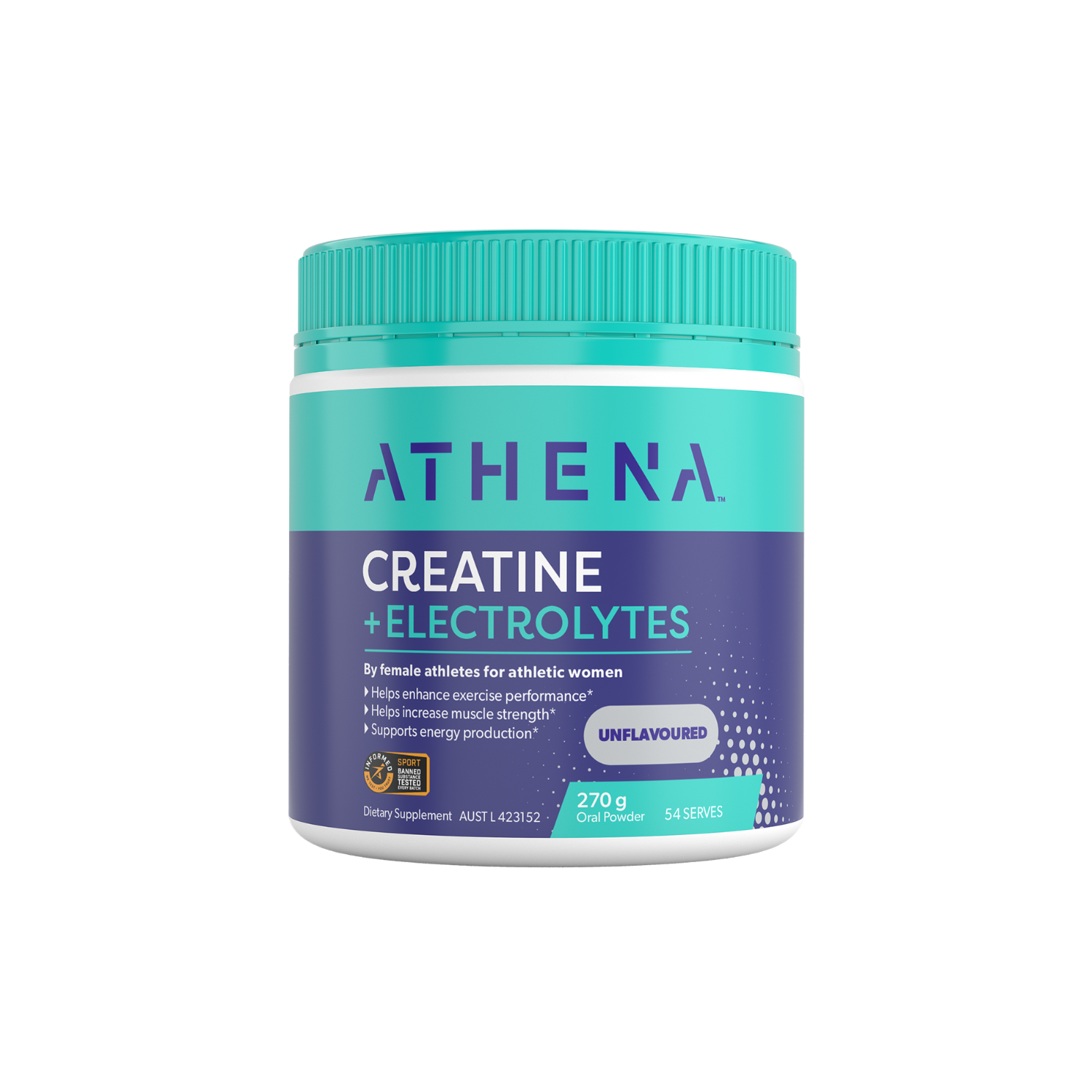Creatine supplementation has been extensively researched for its ability to improve training outputs and exercise performance. It's a very safe supplement and, as active women, it should be a non-negotiable part of our routine. But what about its effect on our brain, mood, and cognitive function? Let's take a look at what the most recent research is telling us.
Enhancing Brain Function
Recent research shows that creatine could have a significant impact on brain function. This means better cognitive processing speed, improved sport skill execution, and enhanced overall brain function.
Our brains are responsible for around 20% of our Basal Metabolic Rate (the number of calories your body needs to function at rest), meaning it has high energy demands and needs a constant supply of ATP. The brain relies on creatine to help maintain this constant supply of energy. While the brain can produce some creatine on its own and can also absorb it from the bloodstream by crossing the blood-brain barrier, it has a limited capacity to uptake creatine when compared to skeletal muscle.
Due to having 70% lower creatine stores compared to males, women also seem to have less creatine in the brain. Some research has shown that females have lower creatine concentrations in the frontal lobe, which controls mood, cognition, memory, and emotion. This is yet another reason why women may benefit more from supplementation.
Supporting Cognitive Performance
Creatine supplementation has been shown to effectively increase creatine levels in the brain. Some studies have reported improved aspects of cognitive processing, especially under circumstances of sleep deprivation or exhaustive physical or mental activities. Creatine has demonstrated promise in skill tests when participants are sleep-deprived, suggesting it could help maintain cognitive function when the brain is in a stressed state. This is particularly relevant for athletes who struggle to sleep around competitions, games or specific parts of the menstrual cycle.
Impact on Mood
As women, we have higher rates of depression. This can be directly linked to hormonal milestones such as during puberty or during the luteal phase. Some studies have also indicated a correlation between brain creatine content and mood disorders. For example, one study showed that those who consumed the lowest amounts of creatine had higher levels of depressive symptoms. This suggests that creatine supplementation could have potential mood-enhancing benefits… watch this space!
Practical Considerations
Creatine is showing promise as an all-around supplement with many benefits. If you wish to improve high-intensity exercise or resistance training adaptations, you should follow a standard creatine supplementation procedure. While solid evidence is still emerging around creatine and cognitive function, the safety of the product and its other well-established benefits make it worth trying.
Loading dose followed by maintenance dose:
20 g/d for 5 d (to quickly increase muscle creatine) followed by 3 to 5 g/d (to maintain increased muscle creatine)
Low dose:
3 to 5 g/d to increase muscle creatine more slowly (but to a similar level as the loading protocol) and then to maintain increased muscle creatine
Incorporating creatine into your routine could be a game-changer, not just for your physical performance, but also for your cognitive health and mood. As active women striving for optimal health and performance, creatine supplementation is a smart choice.



















